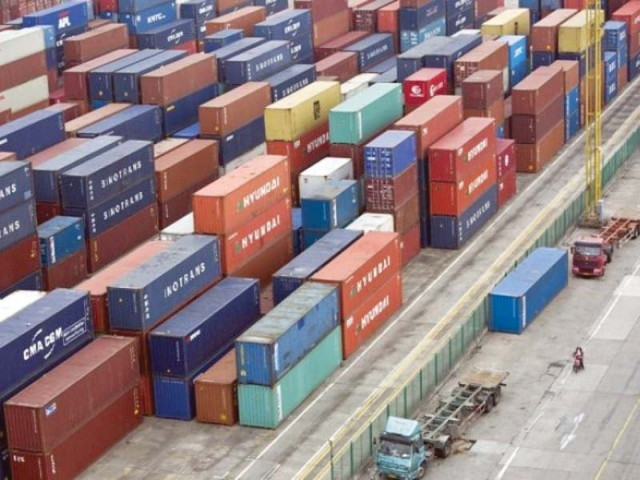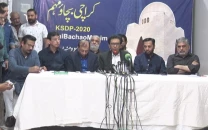Regional energy projects to boost Pakistan’s economy
US official says talks have started for trade, investment deal with Pakistan

Delaney called for bringing down trade and investment barriers in Pakistan including the intellectual property laws and their enforcement. PHOTO: FILE
“Pakistan has energy problem and regional projects like Tapi (gas pipeline) and Casa (power supply) will grow trade, economy and investment,” Delaney said while talking to journalists on Tuesday. “Energy issues were an impediment to trade in Pakistan.”
Australia to invest AUD11m in energy, water management in Pakistan
Responding to a question on liquefied natural gas (LNG) trade between Pakistan and the US, he said, “We generally try to improve and ease trade in all products; the best thing is to remove all barriers to bilateral trade; in principle, we aim to remove all market access barriers to grow trade between the two countries.”
Initial talks have got under way between the two countries to finalise the Trade and Investment Framework Agreement (Tifa) to help trade, economy and investment grow in Pakistan.
“Our main purpose in Tifa is to increase trade and investment and resolve issues which block further growth; it is a technical-level discussion, the point is very simple which is how to grow trade, economic relations and investment,” he said.
Calling Pakistan a best customer, Delaney said Islamabad and Washington had a good relationship with bilateral trade standing at $5.5 billion per year.
However, “it is just a fraction of the potential, so we aim to grow these numbers and we have preliminarily dialogue regarding the upcoming Tifa meeting this year before (presidential) election (in the US in November),” he added.
He pointed to a major fall in foreign direct investment (FDI) in Pakistan in recent years and blamed several factors. One may be the security perception which the government is addressing by taking different steps.
“We are hoping for further improvement; Pakistan government is focusing on World Bank’s Doing Business Index (but) a number of things are more difficult to deal with,” he said.
He was of the view that tariffs were higher in Pakistan and cited the 14.5% applied tariff, which was higher than the US. “Higher tariffs, impediments to FDI and SROs (statutory regulatory orders) are trade-hindering steps that need to be phased out.”
Referring to the plan of establishing free economic zones in the Federally Administered Tribal Areas (Fata), the trade representative said the concept was developed several years ago but approval of the US Congress could not be taken.
The US was no longer pursuing the Regional Opportunity Zones (ROZ) project as a number of them were in the tribal areas, he added.
Delaney called for bringing down trade and investment barriers including the intellectual property laws and their enforcement.
“Tax dispute is very common here and there is a lack of transparency in the dispute resolution process,” he said, adding the US would like to see stronger intellectual property laws and their implementation.
Talking about the proposed Bilateral Investment Treaty, he recalled that the US had entered into negotiations with Pakistan several years ago, but things were moving slowly.
Shanghai Electric bids for stake in K-Electric
He dubbed South Asia the lowest-performing area in regional trade, though countries had typically trade with their neighbours. “We can do the best in facilitating trade between Pakistan and Central Asia under Tifa.”
The trade representative made it clear that the US was not pursuing a free trade agreement as Pakistan was enjoying 90% of concessions and the trade balance was also in its favour.
He claimed that Pakistan had 14.5% trade barriers whereas the US had around 2% barriers, but believed that Tifa would lead to growth in trade and investment.
Published in The Express Tribune, August 31st, 2016.
Like Business on Facebook, follow @TribuneBiz on Twitter to stay informed and join in the conversation.



















COMMENTS
Comments are moderated and generally will be posted if they are on-topic and not abusive.
For more information, please see our Comments FAQ